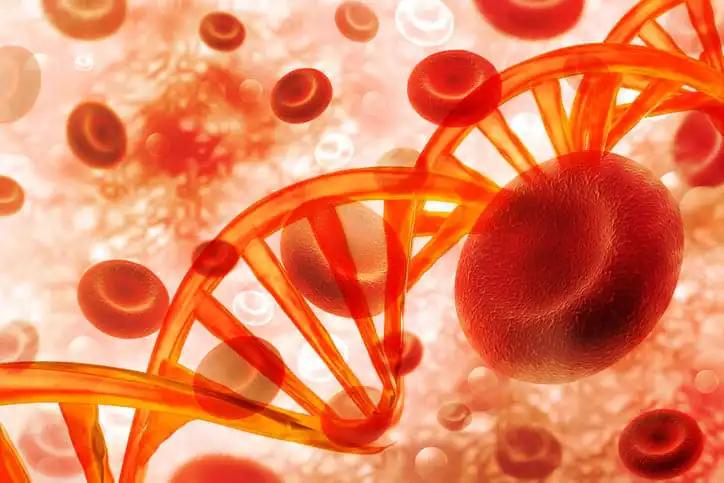KEY TAKEAWAYS
- The study aimed to confirm the R2-ISS’s effectiveness in RRMM pts and those treated with anti-CD38 mAb, using data from the ICARIA-MM and IKEMA Phase 3 studies.
- The study’s findings are the first to independently confirm R2-ISS’s predictive value in RRMM pts and those on anti-CD38 mAb treatment.
The International Staging System (ISS) has been updated to incorporate high-risk chromosomal abnormalities, known as R-ISS, and more recently, to include a scoring system for each risk attribute, such as 1q21+, termed R2-ISS. This improved risk stratification for intermediate-risk multiple myeloma (MM) patients (pts).
The study aimed to validate the efficacy of the R2-ISS framework in pts with relapsed or refractory MM (RRMM), as well as in those undergoing treatment with anti-CD38 monoclonal antibodies (mAb), by leveraging data from the Phase 3 ICARIA-MM and IKEMA trials.
Patients from both the treatment group, which received a triplet regimen, and the control group, using a doublet regimen, were combined for analysis in the ICARIA-MM (isatuximab–pomalidomide–dexamethasone; Isa-Pd vs Pd) and IKEMA (isatuximab–carfilzomib–dexamethasone; Isa-Kd vs Kd) studies. Patients were categorized using the R2-ISS scoring system, where a score of 0 corresponds to Stage I; scores between 0.5 and 1.0 are classified as Stage 2; 1.5 to 2.5 is Stage 3; and scores greater than 3.0 indicate Stage 4.
The hazard ratios (HR) and their associated confidence intervals (CI) were calculated using the Cox proportional hazards model.
Out of 609 pts, 68 were identified as Stage 1; 136 as Stage 2; 204 as Stage 3; 55 as Stage 4; and 146 were not categorized. Progression-free survival (PFS) showed a decline as the stage increased. Specifically, Stage 2 had a median PFS of 21.2 months with an HR of 1.52 (95% CI: 0.979–2.358); Stage 3 had a median PFS of 12.2 months with an HR of 2.59 (95% CI: 1.709–3.923); and Stage 4 had a median PFS of 7.0 months with an HR of 3.51 (95% CI: 2.124–5.784), as compared to Stage 1, which had a median PFS of 38.8 months.
Patients treated with Isa-based triplet regimens experienced longer PFS when compared to those on doublet regimens, recording median PFS of 23.9 versus 11.8 months, respectively, with an HR of 0.544 (95% CI: 0.436–0.680). This pattern held across all R2-ISS stages. In a preliminary analysis of overall survival (OS) that incorporated both finalized ICARIA-MM and preliminary IKEMA data, OS also declined with higher stages (e.g., Stage 2 with OS not yet reached had an HR of 1.3 [95% CI: 0.78–2.18]; Stage 3 had a median OS of 27.5 months with an HR of 2.77 [95% CI: 1.730–4.450]; and Stage 4 had a median OS of 11.3 months with an HR of 4.25 [95% CI: 2.480–7.269]), when compared to Stage 1, where the OS was not yet reached.
For the first time, these findings independently confirmed the predictive utility of the R2-ISS staging system in pts with relapsed or refractory multiple myeloma (RRMM), as well as in those receiving anti-CD38 monoclonal antibody treatments. The data also revealed that Isa-based triplet therapy results in longer progression-free survival (PFS) across all R2-ISS stages when compared to the doublet regimen.
Source: https://clml-soho2023.elsevierdigitaledition.com/478/index.html
Clinical Trial: https://classic.clinicaltrials.gov/ct2/show/NCT02990338/
https://classic.clinicaltrials.gov/ct2/show/NCT03275285/
Perrot, A., Richardson, P., Mikhael, J., Martin, T., Beksac, M., Spicka, I., Capra, M., D’Agostino, M., Sonneveld, P., Bisht, K., Fukao, T., Zhang, R., Tada, K., Tekle, C., Macé, S., Klippel. Z., Velde, H.v.d., Moreau, P. Allocation and Validation of the Second Revision of the International Staging System in the ICARIA‑MM and IKEMA Studies.



